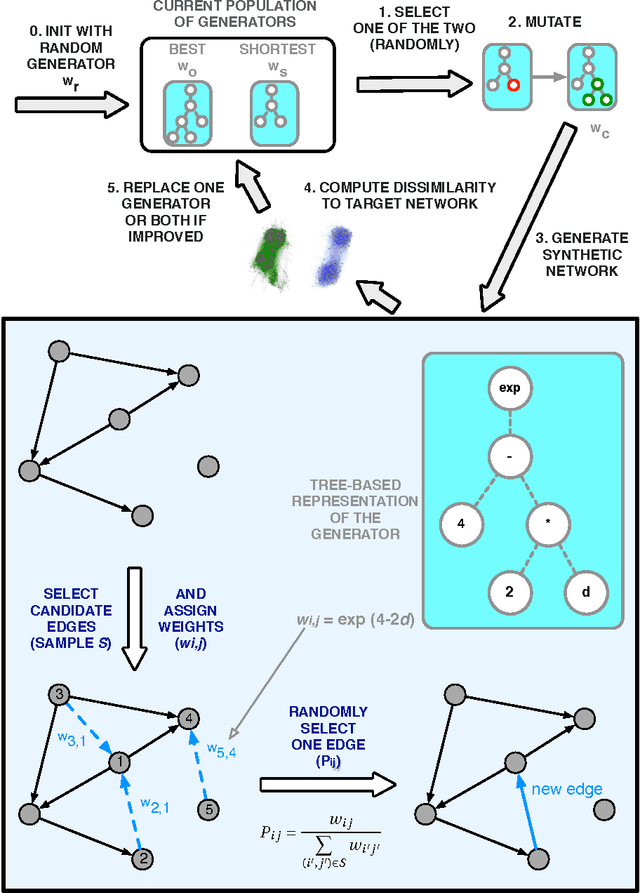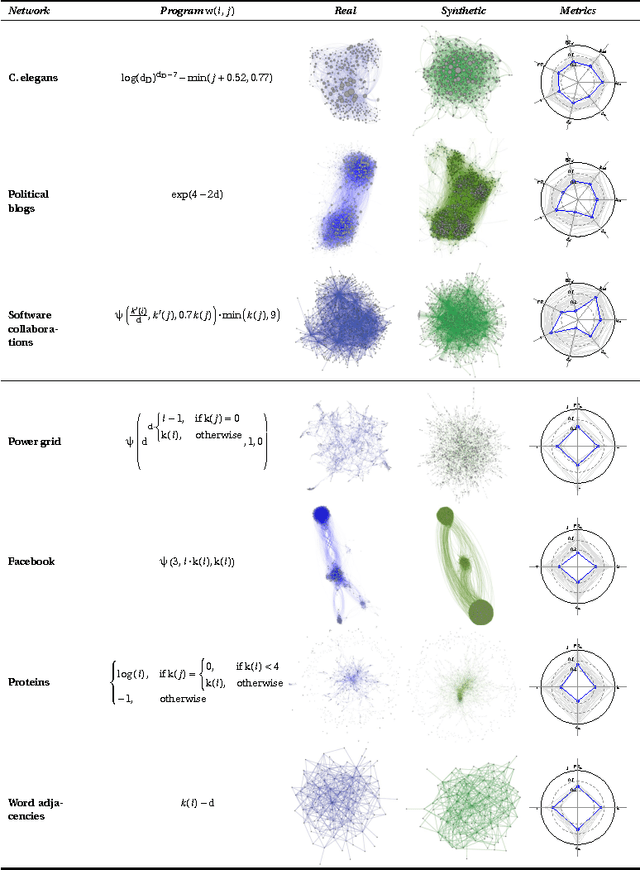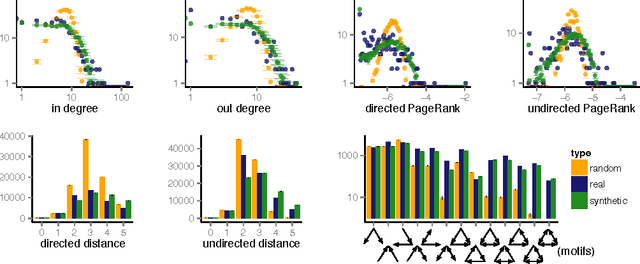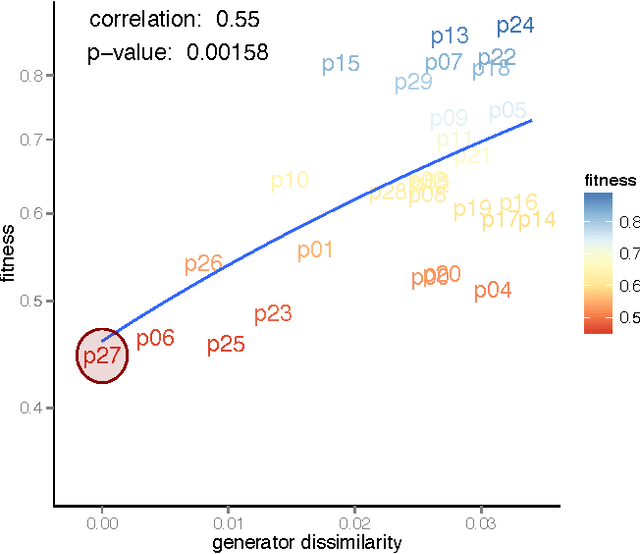Symbolic regression of generative network models
Paper and Code
Sep 08, 2014



Networks are a powerful abstraction with applicability to a variety of scientific fields. Models explaining their morphology and growth processes permit a wide range of phenomena to be more systematically analysed and understood. At the same time, creating such models is often challenging and requires insights that may be counter-intuitive. Yet there currently exists no general method to arrive at better models. We have developed an approach to automatically detect realistic decentralised network growth models from empirical data, employing a machine learning technique inspired by natural selection and defining a unified formalism to describe such models as computer programs. As the proposed method is completely general and does not assume any pre-existing models, it can be applied "out of the box" to any given network. To validate our approach empirically, we systematically rediscover pre-defined growth laws underlying several canonical network generation models and credible laws for diverse real-world networks. We were able to find programs that are simple enough to lead to an actual understanding of the mechanisms proposed, namely for a simple brain and a social network.
 Add to Chrome
Add to Chrome Add to Firefox
Add to Firefox Add to Edge
Add to Edge